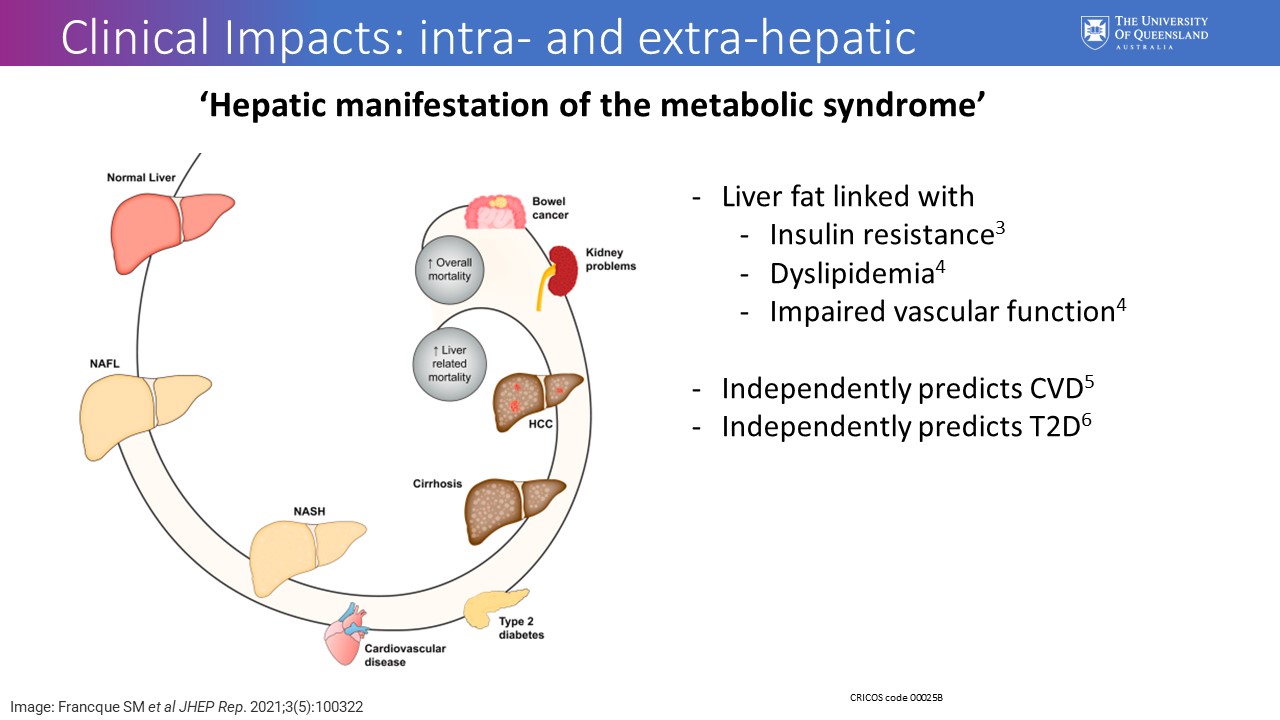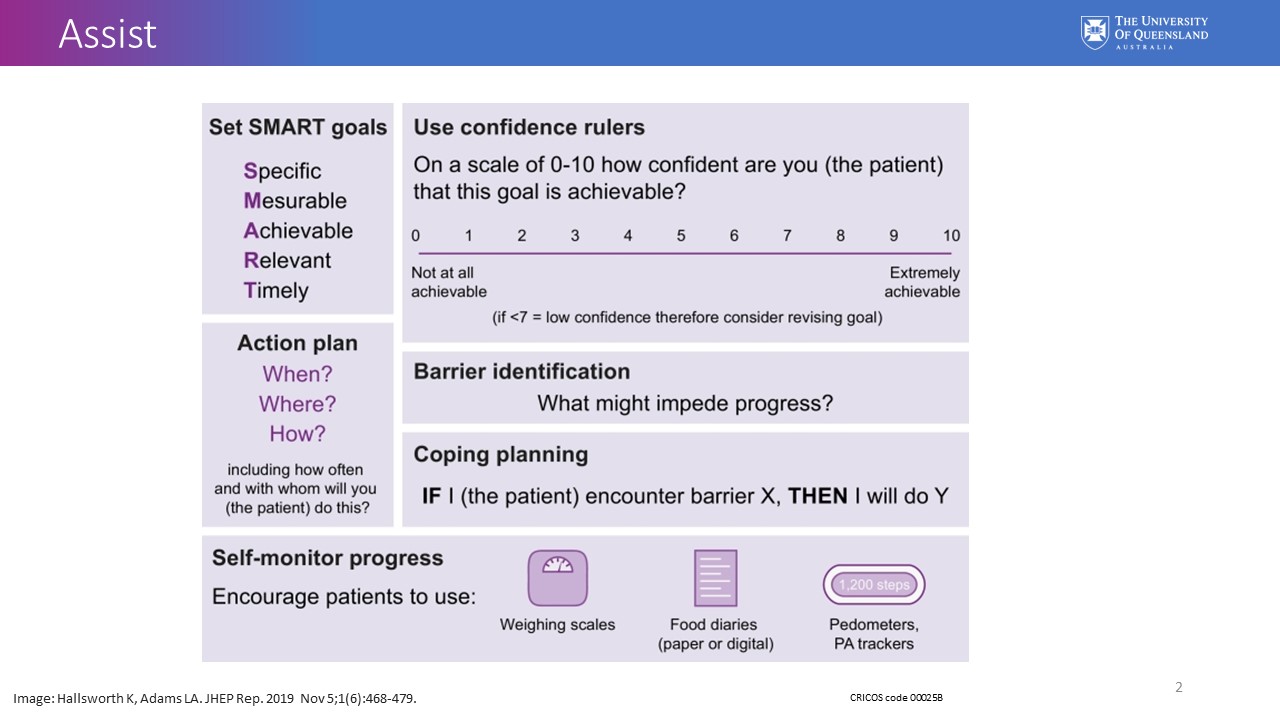Exercise for MAFLD Presented by Dr Shelley Keating PhD AEP
Benefits beyond weight loss for metabolic-associated fatty liver disease
MAFLD? Hold on, is that a typo- Do you mean NAFLD? Non-alcoholic fatty liver disease has undergone a nomenclature change and, in the Asia-Pacific region, is now known as Metabolic-associated fatty liver disease or MAFLD. Shelley Keating AEP gives a quick overview of the reasons for the name change: to remove stigmatising and clinically unhelpful language. From there we dig into the role of the movement professional supporting all people with MAFLD to be physically active.
MAFLD is a ‘silent’ but significant public health challenge with a 25% community prevalence. We now have good evidence that exercise is effective for hepatic- and cardiometabolic-related health benefits. Exercise-associated health benefits tend to occur in the absence of significant weight loss, opening up the opportunities to focus on health and function outcomes.
Indeed, recognising MAFLD as a common precursor to other metabolic conditions sets a clear agenda for the goals of exercise intervention. The prevention of cardiometabolic-related morbidity and mortality features alongside resolving/ preventing progression of MAFLD, and of course those important client self-identified goals. Shelley shares that often value is found in increased functional capacity, reduced fatigue and reduced musculoskeletal pain.
The recently released MAFLD prescription recommendations are clear and well-evidenced, and have wiggle room for client-led preference. Finally, the lived experience perspective is explored and flags a rich area to focus our efforts towards client-centred supports.
Dr Shelley Keating is a Senior Lecturer in Clinical Exercise Physiology at the School of Human Movement and Nutrition Sciences, UQ. As an Accredited Exercise Physiologist, her research explores the independent role that exercise plays in the management of chronic disease including type 2 diabetes, cardiovascular disease and metabolic-associated fatty liver disease.
The ESSA Professional Development Committee certifies that this Professional Development offering meets the criteria for 1 Continuing Professional Development (CPD) Points. Stream now.

